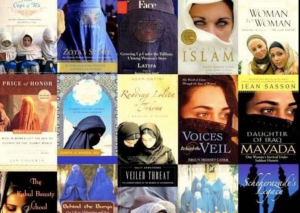Meant to say so yesterday, but barely touched the computer, so a belated but no less hearty "Happy Easter" to Christians lurking out there.
Learning about theory and doctrine is important–For all the complaints about the lack of awareness of Islam in America, how many American Muslims could tell you two of the differences between a Catholic and a Protestant?* –but you don't understand a tradition until you observe it in practice, in the trenches.
* Granted, a lot of Catholics and Protestants are only slightly better
informed about each other, or even their own brands of Christianity. According to one survey more
Americans could identify all 4 Beatles than name the authors of the 4 Gospels. I kid
you not.
I think a lot of intellectuals who fancy themselves ecumenical and
interfaith savvy–myself included–don't venture out of the confines
of their faith communities and just observe often enough. That's
not to knock formal interfaith dialogue events, but I think there's a
limit to how much you can gain or contribute if such happening don't occur in the backdrop of periodic firsthand experience in the trenches (pews?), as it were. As a Muslim I know that Islamic religious life is far more than the sum of its texts (or at least should be), and I'm sure the same holds for all faith traditions. One can't just read about councils and creeds to understand what differentiates modern Christian denominations.
So, I am kicking myself, as I had big Easter-related plans this year. My intention was to take in some Easter services at local churches this time around, but as usual errands and distractions piled up at the last minute and thwarted my plans for "religious tourism" for the holiday.
It's been a while since I observed a non-Islamic religious service,
even though there are churches within walking distance of my home. But all is not lost.
I have not yet missed the Greek Orthodox Easter for 2009. The Orthodox religious calendar is a different from those of the rest of Christendom, whether Catholic or Protestant. For example, the Orthodox Christmas falls 12 days later than the "normal" Christmas. (If that seems arbitrary, consider that cherished Yuletide song, "The 12 Days of Christmas." Christmas used to be celebrated over a period of time, as opposed to one day. I find the idea of small gifts being given each day really beautiful. It must really sanctify the time for children and help to shift their attention away from the gift to the holiday.)
There's an Antiochian Orthodox church in my area–don't ask me how, as this is a small town deep in Baptist and Pentecostal territory–so perhaps I'll pay them a visit this week. Have always wanted to observe (and smell) an Orthodox service.
This is more a comment on my historical illiteracy than anything else, but every time I see the word "Antiochian" I have to confess to thinking of Star Trek. It sounds like an alien race to me. (It's easy to forget what a major center of early Christian civilization this now Turkish city was.)
Here's a nice photo series on Easter around the world in the Boston Globe.











